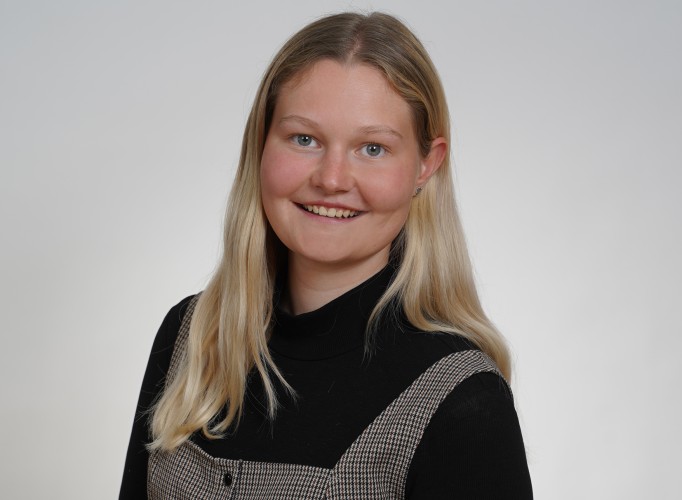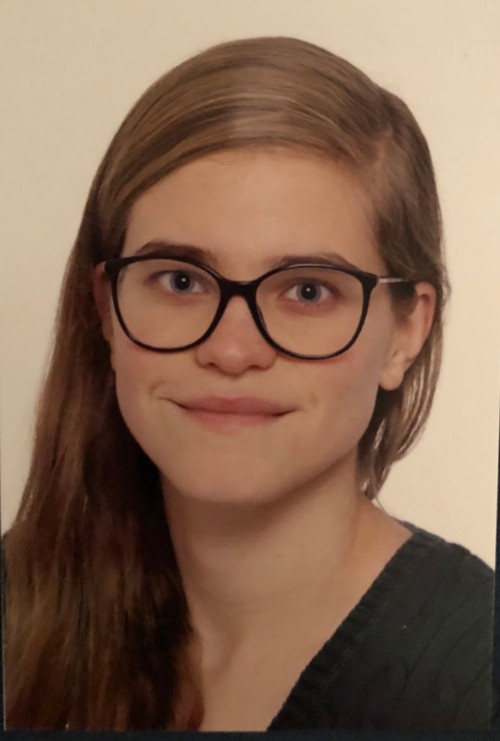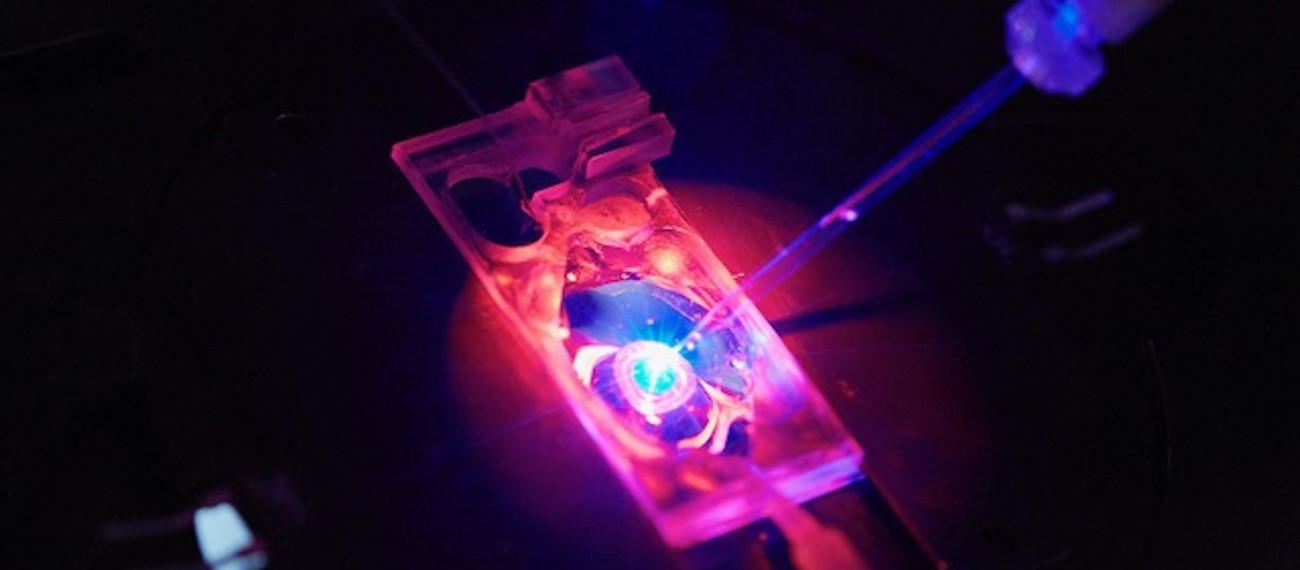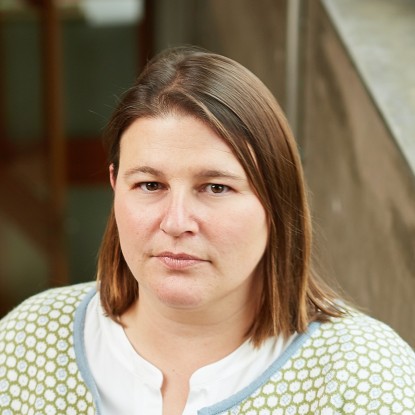Who can apply?
Authors of theses related to synthetic biology are encouraged to apply. For each qualification level one award is available in each year:
BSc Thesis Award (250 €)
MSc Thesis Award (500 €)
PhD Thesis Award (1500 €)
Individuals who completed one of the respective degree programs at TU Darmstadt in the year 2025 are eligible. Candidates can submit their applications directly.
An application contains the electronic form of the thesis together with a brief executive summary highlighting its contribution to the field of synthetic biology (1 page) and a CV of the candidate. The selection committee consists of three founding members of the Centre for Synthetic Biology. Notifications will be sent out by 31. March 2026.
Please submit the application electronically in the PDF file format until 15. February 2026 to the managing director of the Centre for Synthetic Biology Dr. Melanie Mikosch-Wersching (melanie.mikosch-wersching@tu-darmstadt.de).
Award winners 2024
This year's award ceremony will take place at the Molecular Biosensing Symposium on 22. – 26. September 2025 in Darmstadt, Germany.
The following people were awarded the Centre Prize for their theses in 2024:

Tabea Hoffmann
For her Bachelor's thesis, Tabea Hoffmann tested an approach to enhance the kinetics of protein-based synthetic circuits in Saccharomyces cerevisiae. To achieve this, she worked with a NOT-gate prototype based on a sensor system for an inducer and a pre-expressed repressor. This design incorporated combinations of SynZip pairs, a nuclear localisation signal and various degradation tags. Her work provided evidence that some of the genetic components of this construct could function well together, and she proposed ideas for further optimising the project. More broadly, the concept of an effectively accelerated NOT gate could be applied to other types of genetic gate, potentially enhancing the overall kinetics of layered, complex protein-based circuits in eukaryotic systems.

Andrea Patricia Aquize Diaz
During her Master's thesis, Andrea Aquize worked on the experimental validation of codon-optimised gene sequences for recombinant proteins generated by a Transformer-based LLM for E. coli and S. cerevisiae. The performance of the optimised variants was evaluated using various methods such as flow cytometry, growth curves and fluorescence microscopy and compared against the original and alternatively optimised variants. The application of LLMs for codon optimisation aims to create gene sequences with a similar codon usage to their desired expression host, which positively influences the expression of recombinant proteins.

Leon Kraus
RNA aptamers are ribonucleotide sequences that fold into three-dimensional structures, enabling them to bind to specific ligands with high affinity. In this study, RNA Capture-SELEX was employed to select aptamers that undergo conformational changes in response to specific ligand binding. These aptamers can be utilised to regulate various types of RNA devices. Aptamers that bind tobramycin, levofloxacin and caffeine were selected for use in engineering riboswitches and aptazymes in yeast, as well as in the development of biosensors based on fluorogenic aptamers and a lateral flow assay platform.
Award winners 2023
The following people were awarded the Centre Prize for their theses in 2023:

Carina Schleidt
In her bachelor's thesis, Carina Schleidt utilised the mechanisms of drug transport for the coating of E. coli in various polymer membranes to enable the uptake of the bacteria by human cells. The uptake of the bacteria into human cells was achieved under minimal external influences and represents an important step towards further research into the endosymbiotic theory.

Felix Geyer
In his master thesis, Felix Geyer developed strategies for the humanisation and affinity refinement of camelid nanobodies with a non-canonical disulfide bridge. Deep learning-based structure prediction methods were used to design libraries for humanisation and affinity refinement. This approach could reduce the need for extensive laboratory testing and accelerate the discovery of nanobodies in the future.

Jan Mathony
In his doctoral thesis, Jan Mathony focussed on the recombination of protein domains and their application in the design of specifically controllable proteins. The skilful molecular linking of existing domains to form new combinations can be used to create proteins with novel properties. The experimental high-throughput screening of such recombinations enabled Jan Mathony to analyse the structural and biophysical basis of this type of engineering and to develop new molecular tools for the light-controlled regulation of gene expression and gene manipulation.
Award winners 2022
The following people were awarded the Centre Prize for their theses in 2022:

Melina Baur
In her bachelor thesis, Melina Baur used a tetracycline-binding aptamer to control gene expression in eukaryotes at the posttranscriptional level. Integration of the switch led to control of alternative splicing of not only synthetic but also native sequences. Further testing showed that the switch can be fine-tuned and therefore adapted to specific applications. Overall, this work expands the synthetic biology toolbox for controlling eukaryotic gene expression at the level of splicing.

Tobias Probanowski
In his master thesis, Tobias Probanowski developed a new modular approach for the systematic construction and engineering of recombinant protein nanopore assemblies with novel properties and functions in E. coli. This approach involved the recombination of different pore-forming transmembrane domains with ring-shaped oligomeric protein scaffolds via protein linkers. The resulting variants were characterized using the newly developed FuN screen, which allows for quick and thorough assessment previously only possible using technically challenging and low throughput biophysical methods. In synthetic biology, such nanopore assemblies could find a wide range of potential applications both in live cells and in vitro.

Stefania Carrara
In her dissertation, Dr. Stefania Carrara developed novel multispecific antibodies with immune cell modulating functions and established new methodologies for the optimization of antibody drug discovery workflows. These included the design of a bidirectional vector system for mammalian antibody production and a streamlined yeast surface display-based screening procedure. Furthermore, bi- and multispecific molecules engaging different immune cells were generated, resulting in targeted and efficient in vitro tumour cell killing. The tetraspecific antibodies contain a built-in risk mitigation strategy for commonly observed adverse effects with this class of antibody molecules, which may overcome limitations of existing therapies and pave the way for new multispecific antibody formats.
Award winners 2021
The following people were awarded the Centre Prize for their theses in 2021:

Ron Endruszeit
“In his bachelor thesis Ron Endruszeit tested the extend to which membrane proteins of the autotransporter family enable efficient surface display of complex fusion proteins in E. coli, and demonstrated the suitability of the system for protein-interaction screening by immobilization of binding partners on the cell surface. From the repertoire generated via the cloning strategy iFLinkC, a dependence of the protein-target interaction on the properties of the varied linkers could be concluded. In the future, the system should enable the fast and customized selection and isolation of protein variants from cell libraries.”

Sarah Schmitt
In her master's thesis, Sarah Schmitt worked on the recombinant modification of nanopores. With the help of protein engineering, nanopores can not only be better understood in terms of how they function, but their properties can also be modified, paving the way for biotechnological use. Furthermore, a native nanopore was modified to combine its own perforation properties with regulatory and sensory features.

Jan Bogen
In his dissertation, Dr Jan Bogen developed a variety of new methods for the generation, screening and engineering of tumour-specific antibodies. These included a novel method for the construction of immune libraries based on bidirectional vector systems, an approach for the rapid and effective humanisation of therapeutic drug candidates and for the generation of biparatopic antibodies. The molecules isolated in this work were adapted and optimised so that they could be combined into a trispecific, multifunctional antibody. This was able to prevent both the growth of cancer cells and their masking from the immune system, and at the same time mediated the attack of immune cells on the tumour cells. This molecule is thus unique in its mode of action and paves the way for new therapeutic approaches in the future.
Award winners 2020
In 2020, the following people were awarded the Centre Prize for their theses:

Theresa Wörmann
In her bachelor thesis, Theresa Wörmann constructed a fluorescent protein sensor against the biotechnologically relevant macrolide rapamycin and successfully applied it to quantitatively measure the flux of rapamycin across the cell membrane of E.coli in dependence on pore-forming membrane peptides. The bachelor thesis opens up a novel approach to systematically investigate the permeability of biotechnologically relevant products – an important but largely overlooked aspect in industrial biotechnology.

Christoph Reich
In his bachelor thesis, Christoph Reich developed a neural network – technically a generative adversarial network – to synthesize temporal multi-domain image sequences and showcased it with short time-lapse fluorescence microscopy imagery of yeast. These in silico simulations capture underlying biophysical factors and time dependencies, such as cell morphology, growth, physical interactions, as well as the intensity of a fluorescent reporter protein. The thesis is a first step towards completely in silico experimentation and in the future, this approach may complement and augment classical experimentation and mathematical modeling. The thesis is available on arXiv (https://arxiv.org/abs/2103.11834), along with a follow-up paper recently accepted to MICCAI 2021 (https://arxiv.org/abs/2106.08285).

Alexander Gräwe
In his doctoral thesis, Alexander Gräwe developed fundamental strategies for the construction of molecular sensory systems. This included novel approaches for the systematic construction of molecular switches, as well as, in collaboration with chemists and material scientists, a process for functionalising nanoporous films with customised receptors. The developed methods are to be used in medical diagnostics or in environmental monitoring.



